- Home
- Barry Eisler
Killing Rain Page 2
Killing Rain Read online
Page 2
I didn’t know how Dox was able to maintain his constant good cheer even as he prepared to go operational. When I’m gearing up, I get serious, even dour. Harry, my martyred hacker friend, had always been nervous helping me with ops, and had often provoked an unfamiliar clownishness in me. But Dox and I seemed to polarize the opposite way.
But he’d done well so far. I wasn’t yet confident in his social engineering skills. He was too consistently brash, too direct, and, I had to admit to myself, his style was just too different from mine. Getting Manny’s room number had been a test. I’d resisted the urge to tell him how to go about it, and he had come up with something close to what I’d thought of myself. More important, something that worked. It wouldn’t come easily to me, but I’d have to try to give him more slack as we went along, as he continued to prove himself.
“Let’s see,” I said, closing my eyes. “He’s in nine-fourteen. That’s around the corner from the elevators. Unless the bodyguard is positioned at the elevators while Manny is in his room, I ought to be able to get some video in place.”
“Yeah, nice having a way to know when he’s leaving. I hate hanging around in the open, waiting for someone to go out.”
In the dark, though, I knew Dox could wait for days. He had the kills to prove it.
I opened my laptop bag and took out a camera, a wireless unit about twenty millimeters square and weighing less than an ounce. I clicked it on, then worked the laptop’s keyboard for a minute, watching as the screen filled with input from the unit. “It’s transmitting all right from here,” I said, “but at nine hundred megahertz it’s only rated to about a thousand feet. I might have to install a couple of repeaters along the way. You wait here and monitor the screen. Tell me if you’re getting reception and the right view of the elevators once I’ve got it in place.”
“Roger that.”
We took earpieces from the laptop bag and slipped them in place. I walked over to the door and checked through the peephole. The hallway was empty.
I walked out, hearing a loud clack as the door closed behind me. “You there?” I asked quietly.
“Roger that,” I heard back. Okay, the commo gear was still working.
I took the elevator down to the lobby level, not wanting to go to Manny’s floor directly from mine. To satisfy anyone who might be watching through the dome security camera peeking down from the elevator ceiling, I got out and bought a pack of gum at the gift shop, then came back and headed up to the ninth floor. There were no stops along the way, and a minute later the doors opened on nine. I walked out and looked around. The hallway was empty.
There was a wooden credenza against the wall opposite the elevators with a mirror behind it. I walked over, supported myself against the credenza with my left hand, and ran the fingers of my right through my hair. There was another dome camera mounted on the ceiling in front of the elevators, and if anyone was watching right then, all they would see was a man concerned with his appearance. In fact, I had slipped the adhesive-backed unit underneath the left edge of the credenza, where it would have a wide-angle view of the approach to the elevators.
“How’s the image?” I asked quietly.
“No go. Too grainy. Signal’s falling off before it reaches the receiver. I think we need the repeater to boost it.”
“Okay. Hang on.”
I walked down the hallway for a few paces, then returned to the elevator, just another hotel guest who’d absentmindedly gotten off on the wrong floor. This time, I stopped on six. As I got off, I checked my room key and looked around in slightly theatrical confusion, thinking, Gosh, these floors all look the same, where was I staying again? just in case someone was watching. Then I placed a repeater in front of the elevators the same way I had put the camera in on Manny’s floor.
The moment I clicked it on, I heard Dox’s voice: “Okay, there we go. Now that’s a beautiful view.”
I moved out of the way. “The approach to the elevators?”
“Yeah, and it beats the wide-angle shot of your crotch I was getting a minute ago. Someone should call America’s Funniest Home Videos.”
I thought about a retort, but then this was exactly what he wanted. I let it go and walked back to the room.
TWO
THE TWO MEN who’d offered me the Manny job a week before had never explicitly acknowledged their affiliations. They might have been Mossad; they might have been attached to one of the elite Israeli military units, like the Sayeret Matkal. All I knew was that they were compatriots of Delilah, who had vouched for them. Her involvement had been enough to convince me to meet them.
Delilah and I had first crossed paths in Macau, where we discovered we were both focused on Achille Belghazi, an arms merchant I had been hired to kill but whom Delilah’s people needed alive for the extraction of critical intelligence. We’d managed to create an uneasy truce, though, and things had worked out well in the end. Very well, if you included the month Delilah and I had spent together in Rio afterward, before she had to return to her world and I to mine.
But despite our personal chemistry, I didn’t trust Delilah completely: she was an operator, after all, with her own professional agenda. So I had insisted that her people travel to Nagoya, a large Japanese city two hundred miles west of Tokyo. For me, Nagoya would be native terrain, but for a couple of visiting Israelis, and any uninvited guests they might decide to bring, it would be unfamiliar and uncomfortable, and they would be reassuringly conspicuous there. Tokyo might have served my purposes instead, but I preferred to travel there infrequently. It had been two years since I’d faced off with Yamaoto, the puppet-master behind much of Japan’s endemic corruption, but I knew the man had a long and bitter memory and would be looking for me in Tokyo. Nagoya was better.
My prospective clients followed my instructions, and on the appointed day and time we met at Torisei, a small yakitoriya in Naka-ku. Yakitori is down-home Japanese fare, primarily chicken, other meats, and vegetables grilled over an open charcoal barbecue and served on wood skewers. It’s usually supplemented by chazuke, a soupy mixture of tea and rice, and always washed down with copious portions of beer or hot sake. Yakitoriya tend to be small, cozy, and unpretentious, and are often located near subway stations to make it easier for their sarariman and student patrons to duck in for a quick meal at a corner table or the easy camaraderie of the counter.
I was sitting in a tea shop across the street, wearing an unobtrusive sarariman-style navy suit and reading the Asahi Shimbun, a Japanese-language daily paper, when they arrived. I saw them approach from the north, pause to glance at Torisei’s sign, and go inside. Although they were out of their element in Nagoya, they didn’t refer to directions or other written instructions to confirm that they’d found the place, and I sensed from this that they were accustomed to operating sterile, something that in professionals becomes a habit.
I waited and watched the street. After ten minutes, I got up and followed them in. As I parted the establishment’s blue noren curtains, I was thinking in Japanese and maintaining a Japanese persona. In my peripheral vision, I saw that they had taken one of the small tables. They both looked up when I arrived, but I ignored them. I expected Delilah would have given them a description, but I doubted that would be enough for them to pick me out if I wanted to stay anonymous. I took a seat at the counter, facing them and with the entrance door to my right. I ordered yaki-onigiri—grilled rice balls—and an Asahi Super Dry, opened my paper, and started to read. After a few minutes, when I felt they would have concluded I wasn’t of interest, I glanced around.
I liked what I saw. They were dressed neatly, blazers but no ties, and seemed relaxed and comfortable in the doubtless unfamiliar environment. But for a slightly heightened sense of alertness that only someone like me would have recognized, they could have been a couple of visiting European tourists, or businessmen pleased to have discovered an authentically Japanese place to eat after a day of interminable meetings in some generic office conference room.
/> I looked around and didn’t see anyone or anything that set off my radar. After another moment, I explained to the counterman that my acquaintances were already here and I had somehow overlooked them. I was going to go join them at their table, and, when it was ready, the waitress could just bring my order there.
I got up and strolled over. I left my newspaper at the counter, wanting to reassure them in the face of this small surprise by keeping my hands empty. They watched me coming.
When I reached their table, I said, “Boaz? Gil?” These were the names I had been given.
They both stood up. The one with his back to the door said in lightly accented English, “I’m Boaz.”
The other said, “Gil.”
“Sorry,” I said, “I didn’t see you here at first.”
Boaz laughed at that. They knew damn well I had seen them.
We shook hands and I sat down next to Gil. Boaz looked at the all-Japanese menu and asked with a smile, “Do you want to order, or shall I?”
His smile was reassuring and I returned it. I said, “Maybe you should let me.”
As we ate and talked, I found myself impressed. They were in their early forties, senior enough to have advanced within their organization, presumably on merit, but not so senior that they would have lost touch with the field. They were comfortable in their cover: although I sensed by a dozen small tells that they were ex-military, nothing in their outward appearance would have revealed their backgrounds to a casual observer. They eschewed G-Shock wristwatches, aviator shades, too-short hair, and the other indicators of an ongoing attachment to a military past. Instead they wore their hair at a civilian length; dressed tastefully, even stylishly; and either were comfortable unarmed or were carrying weapons I wasn’t able to detect. They were confident, but not arrogant; businesslike, but not cold; obviously serious, and even grave, about the business at hand, but not without a sense of humor.
Of the two, Gil was quieter. His eyes were a contradiction—partially hidden by heavy lids that made him appear relaxed, almost ready to doze, and yet lit by a strange glow from within. In those eyes and in his unaffected tone I recognized a fellow killer, a man who had taken lives at close range, and who was prepared to do so again. Boaz, short, balding, and slightly chubby, had a warmer persona, and I judged him the less lethal of the two. In fact, he had an infectious laugh and insisted on telling me several American jokes, which I didn’t find unfunny. If they were a team, Boaz was the front man and Gil the trigger puller, a division of labor that, I imagined, would be fine with Gil.
They had initially insisted that Manny’s expiration would have to appear natural. I pressed them for a more precise definition. Certainly a heart attack is natural, about as natural as it gets, and I’ve been known to cause one when conditions are right. But I wasn’t sure I could get that close to someone like Manny, wasn’t sure I could establish the necessary control over the environment. I asked them about an accident, or a suicide. These were possible, they said, if things could be made to look convincing. I told them there were no guarantees, not with the little they were giving me to go on. I told them that in the end it might have to look like a crime—a robbery or a kidnapping gone awry, foul play, yes, but not foul play that had been directed specifically at Manny. And therefore not attributable to anyone who would be happier in the absence of such attribution.
In the end, we had agreed on a sliding scale of compensation, with the richness of each potential payment tied to the degree of “naturalness” of Manny’s demise. Sure, there were some gray areas that a good lawyer might have been able to better define. But I was confident that any disputes would be resolved in my favor. Trying to take advantage of someone like me is usually unwise, and smart people tend to know better.
I noted the way they made decisions. There was no “We’ll get back to you on that” or “We’ll just have to check with headquarters first.” They examined the facts and made up their minds on the spot. Obviously their organization gave them a healthy amount of operational autonomy. I sensed a deference on Gil’s part toward Boaz, and took Boaz’s likely rank as further evidence that he was more the brains, Gil more the brawn of the operation.
I asked them why they had come to me rather than doing the job in-house. Boaz laughed his infectious laugh. He looked at Gil, then at me, and said, “You think the two of us would blend in in a place like Manila?”
“I know this might come as a shock to you,” I told them, “but not all Asians look alike. I don’t look particularly Filipino.”
Boaz said, “We don’t mean to imply that all Asians look alike. We’re familiar with the differences. I only mean that an Asian would blend there better than a Caucasian. I don’t think that’s an inaccurate statement, is it?”
In fact I wasn’t worried. Although it’s true I don’t look like the average Filipino, there are plenty of ethnic Chinese in the country and all sorts of other mixes, too, along with a significant expat population. With the tan I had acquired in Rio, where I had been living since leaving Japan, I knew I could blend in just fine. But I didn’t want them to think this would be easy. They might try to price it accordingly.
We were quiet for a moment. Boaz said, “Also, you were highly recommended.”
“Delilah?”
Gil said, “And other sources.”
I wondered whether there really were any other sources, or whether they were just trying to seem more connected than they really were. Cops, intelligence agents, interrogators . . . puffery about how much you know is a venerable technique for establishing control.
“Recommended on what grounds?”
Boaz shrugged as though the answer were obvious. “Reliability. Discretion.”
Gil, his eyes flat, added, “Lethality.”
I glanced around and confirmed that no one was within earshot. The Japanese education system’s ubiquitous efforts to teach English as a second language are sometimes endearingly useless, but there are plenty of success stories wandering around, too, and you have to be careful. I said, “I’m glad my references checked out.”
Gil shrugged. “Delilah seems to think highly of you.”
The comment was redundant after Boaz’s assurance that Delilah had recommended me. That, and something in Gil’s tone, suggested to me that he wasn’t entirely pleased by Delilah’s enthusiasm. If he was jealous, it was sloppy of him to show it. On the other hand, it was clear to me that Gil was employed for talents other than his knack with people.
“To be more specific,” Boaz said, “lethality without weapons.”
His smooth catch of the conversational ball made me feel I had been on to something in thinking that Gil might have some issues with Delilah. I raised my eyebrows, and Boaz went on.
“Firearms present a problem in Manila. All the public venues—hotels, shopping centers, theaters—have guards and metal detectors. Lots of bombings in the region, and these are countermeasures. So if you’re carrying a gun, you’ll limit your mobility.”
Gil said, “But we understand you don’t carry.”
“Depends on the terrain,” I said, deliberately noncommittal.
“But you don’t need one,” Gil pressed, as though intrigued.
I shrugged. “A gun is a tool. Sometimes it’s the right tool to carry, sometimes not. Like I said, it depends.”
They nodded: Boaz, seemingly satisfied; Gil, as though mentally confirming that, in a pinch, he could drop me. Christ, he was in his forties, he really should have been past that sort of shit. Well, I guess you never get past it.
After a moment, Boaz said, “Regardless, we would prefer if he died of something other than lead poisoning.” He raised his eyebrows, and I nodded to indicate I understood the joke. He smiled.
Gil added, “As we’ve explained, the less this looks like an assassination, the better.”
“The ultimate point being deniability,” I said.
To that, they both nodded.
I wanted to ask about that, but I sensed it might be a
sensitive subject, so I decided to hold off for a moment. “Tell me,” I said, “what has our friend Manny done that’s made you want to wish him other than a long, prosperous life?”
The truth was, I didn’t particularly care why they wanted him dead. What I needed was who, and where, and when. But I’ve learned from experience in the business that their ostensible reasons, and what I might glean from between the lines of their response, could help me protect myself from unpleasant surprises.
Gil took a briefcase from the floor and placed it on the table, then reached inside. Although we were in a public place and all seemed comfortable enough, I noted that he moved reassuringly slowly. The implication was: If you have a problem with me reaching into a bag, just say so, and I’ll stop. The move was courteous and showed experience.
Gil took out a sheaf of about a dozen color photographs and handed them to me. Holding them so that no one in the restaurant could get a casual look, I started leafing through them.
Boaz said, “The top one is Bali, October twelfth, 2001.”
The photo was of a demolished building. Charred bodies were everywhere, lying among burning palm trees and smoking rubble. A dismembered hand was front center, a man’s wedding band prominent on the fourth finger, bloody tendons protruding from the stump of the wrist like wiring ripped from the back of an electronic appliance.
“You’re saying Manny did this?” I asked, my tone dubious. “I thought Bali was Jemaah Islamiah.”
“Yes, JI carried out the op,” Boaz said. “The Malaysian Azahari Husin was the bombmaker. But where did Azahari acquire his expertise? From our friend.”
“Lavi is a chemist by training,” Gil said. “He has special expertise in the explosive properties of various materials. That expertise is now for sale.”
“Take Bali,” Boaz said. “The Bali bomb used lots of low explosives—potassium chlorate, sulfur, aluminum powder, alum, and chlorine—and only a small amount of TNT. The mixture created a shock wave and blistering heat. Most of the victims were roasted alive.”

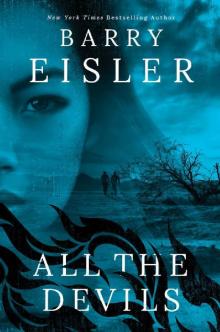 All the Devils
All the Devils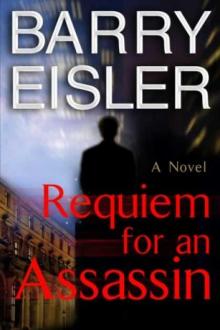 Requiem for an Assassin
Requiem for an Assassin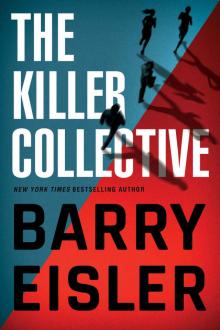 The Killer Collective
The Killer Collective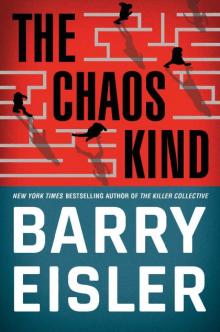 The Chaos Kind
The Chaos Kind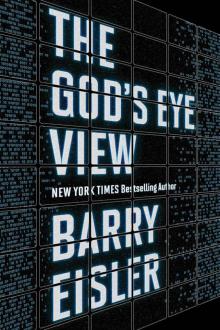 The God's Eye View
The God's Eye View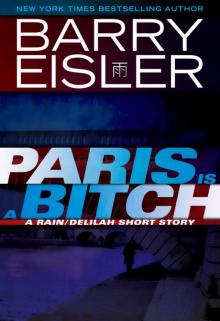 Paris is a Bitch
Paris is a Bitch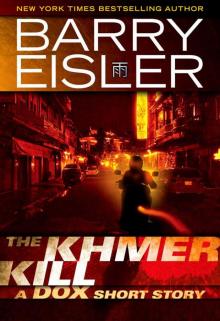 The Khmer Kill: A Dox Short Story (Kindle Single)
The Khmer Kill: A Dox Short Story (Kindle Single)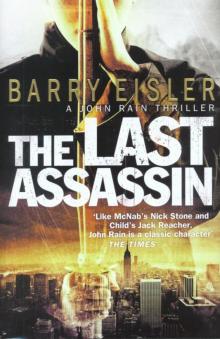 The Last Assassin
The Last Assassin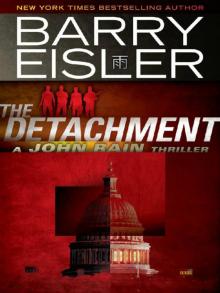 The Detachment
The Detachment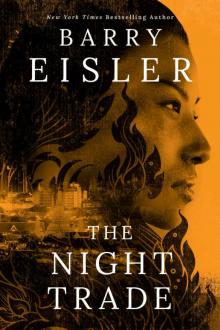 The Night Trade (A Livia Lone Novel Book 2)
The Night Trade (A Livia Lone Novel Book 2)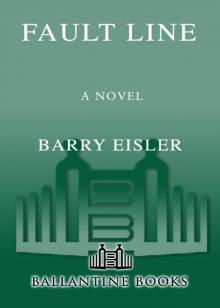 Fault Line
Fault Line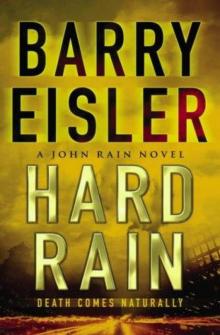 Hard Rain
Hard Rain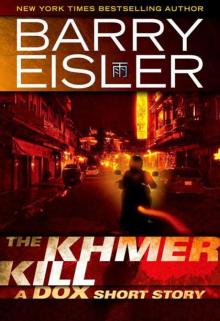 The Khmer Kill_A Dox Short Story
The Khmer Kill_A Dox Short Story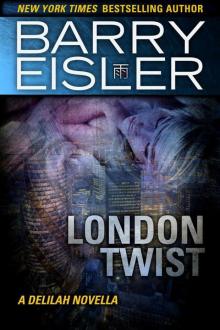 London Twist: A Delilah Novella
London Twist: A Delilah Novella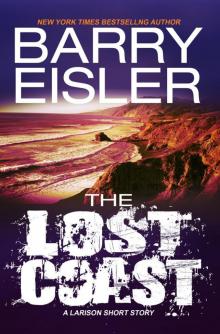 The Lost Coast
The Lost Coast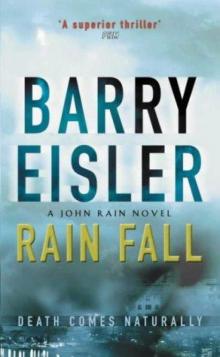 Rain Fall
Rain Fall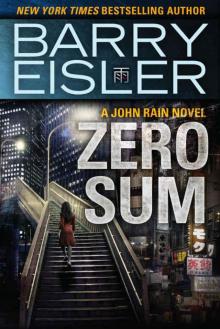 Zero Sum
Zero Sum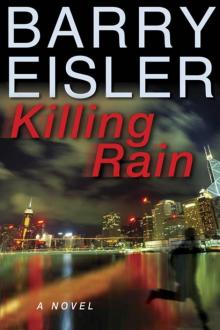 Killing Rain
Killing Rain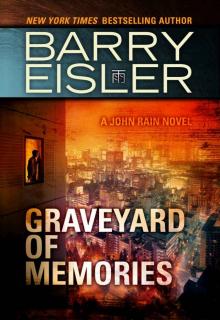 John Rain 08: Graveyard of Memories
John Rain 08: Graveyard of Memories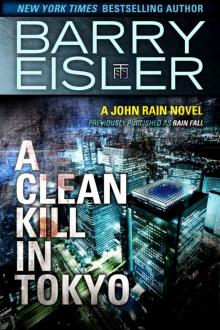 A Clean Kill in Tokyo (previously published as Rain Fall)
A Clean Kill in Tokyo (previously published as Rain Fall) Inside Out: A novel
Inside Out: A novel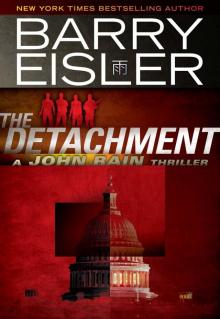 John Rain 07 - The Detachment
John Rain 07 - The Detachment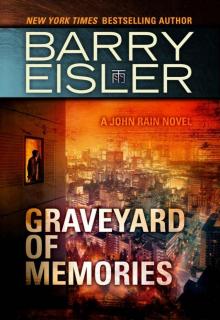 Graveyard of Memories
Graveyard of Memories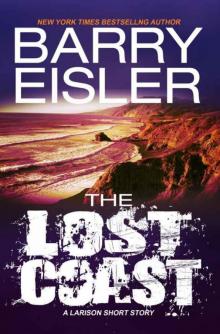 The Lost Coast -- A Larison Short Story
The Lost Coast -- A Larison Short Story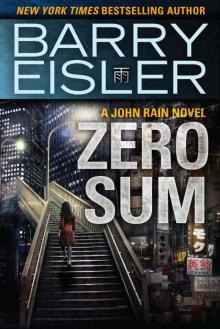 Zero Sum (A John Rain Novel)
Zero Sum (A John Rain Novel)